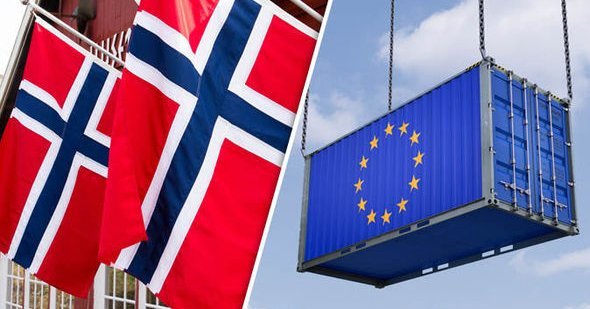In contrast to its ‘harder’ counterparts, the ‘Norway Model’ entails full access to the EU´s single market through a membership in the European Economic Area (EEA-EFTA). That’s obviously good for trade. Yet as a Norwegian European, I’m sad to tell my British friends that the EEA fairytale is probably a pipe dream, albeit a relatively favourable one.
Consider first why other alternatives are so undesirable. In essence, British trade with EU countries – i.e. around half of its total trade – will to some extent be tackled by tariffs once the access to the Single Market is history. Since the balance of trade favours EU emphatically and any sum of bilateral agreements with each EU state is destined to fall far short of a comprehensive agreement à la EFTA, a ‘hard Brexit’ is a gloomy sight for the British economy.
Next, the ‘slightly softer Brexit’ modeled on the EU-Canada arrangement – allowing free leeway on immigration policy by discounting free trade of services – is indeed a fair compromise but one Theresa May must reject: the service industry is, after all, Britain´s big trade ace.
Left standing is the ‘Norway model’, but with two problems. Firstly it’s politically difficult. Mrs May would have to accept the ‘four freedoms’ and hence labour immigration – that is, opening the door to the Leave-campaign´s favourite bogeyman. Plus, diplomatic signals from Oslo suggest that Norway may block a British entry into the EEA (“It’s our little fishbowl!”). Yet for the sake of the argument, let’s imagine a UK membership. How does it look?
Our Norwegian experience
Two years before I was born, my beloved Norway (at least 52.2% of her) chose to be a law-taker instead of a law-maker in Europe. The deal satisfied our industrial base but left an unforgivable democratic deficit: via the ‘four freedoms’ framework we must in practice accept every piece of legislation the EU adopts on most political fields without being able to influence them. Oh, did I mention the EEA Grants? Imagine how amused the ‘£350m to NHS’-voters get when they find out that Norwegians pay around the same per capita into the Union as Britain did from within (InFacts).
In short, the ‘Norway model’ is a buzzword for a costly train-ticket to a secret destination that you nevertheless have to buy because it’s hailing cats and dogs outside. British diplomats will end up paying for Frenchmen´s lunch at Place Luxembourg to get a feeling of who’s saying what inside rooms where vital decisions are made. It’s a funny way to ‘take back control’.
Still, our model is the lesser of evils. Those who prefer economic growth and international cooperation vis-à-vis their respective alternatives will agree with me that the Single Market is a nice companion to have. My proposal, then, is that the ‘four freedoms’ is a small price to pay to keep a foot in Europe and The City placed in London.
Indeed, political scientist and Brussels insider Paal Frisvold recently suggested that in the negotiations, “Mrs May may find an audience sympathetic to tightening the free movement of people” and instead prioritize labour migration. Regardless, the Single Market is in definite need of a discursive renaissance."
It’s the economy, stupid
To get there – and more generally to fight zeitgeist Euroscepticism – it’s paramount that we stop letting the New Right get away with playing social democrats. For too long they’ve successfully presented a cocktail of protectionism and closed borders as some kind of deus ex machina to combat inequality and alienation. Meanwhile, too many center-left strategists have retreated to far-away trenches of increasingly bizarre ‘identity politics’ smelling of Nitzschean ressentiment. The writing is on the wall: A left which ignores the majority out of principle is utterly paradoxical and destined to appear out of touch.
Now it’s time to reconquer the issues; to proclaim that more inequality doesn’t just automatically occur when trade grows our budget cakes. That jobs aren’t necessarily lost but created when labour immigration boosts allocative efficiency. That the EU project doesn’t repress social mobility or prevent redistribution of wealth – incompetent neo-liberals in our governments do.
Then, perhaps, when economic integration is uncovered as a powerful tool for good, access to the Single Market can become a demand of the many (and not the few). Sadly, the Norwegian experience underscores the bittersweetness of such a scenario. But you know what they say. At least the train ride is comfortable.


Follow the comments: |
|
